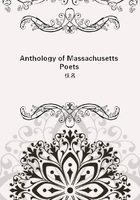Mill does not want all this apparatus to get rid of the transcendental world.It is for him too obviously superfluous to require to be exploded.How then does he come into conflict with Hamilton?We must turn for explanation to another of Kant's arguments.The universe must be regarded as in some sense one,though that does not prove the existence of a simple and absolute Being as its ground or principle.On the other hand,the universe is an indefinitely complex multitude of reciprocally dependent things.We can bring the 'laws'into unity and harmony;but the things through which the laws are manifested are themselves infinitely numerous.We may then ask whether the universe is not only one but a whole;whether its unity entitles us to call it a single object.This leads to the famous 'antinomies.'They have been familiar enough in many forms since speculation began.The universe is given in space and time.Now,we cannot think of space and time either as finite or infinite.We cannot think of space as finite because,however far we go,there is still space beyond.We cannot think of space as infinite,because to imagine infinite space would require an infinite mind and infinite time.
Space must be either infinite or finite,because one of two contradictories must be true,and yet each is 'inconceivable.'Imust confess with due humility that I could never see any antinomy at all.In this I agree with Mill,(86)though I cannot agree with his attempt to explain our beliefs in the infinity of space by an 'inseparable association.'The apparent antinomy is due,I fancy,to a shift in the meaning of 'infinite.'The mathematician calls space 'infinite'because space is limited by space,and there cannot be a 'whole'of space.If by 'infinite'Imean the completion of a process which ex hypothesi cannot be completed,I become self-contradictory.There is no meaning in 'a whole'of space,though every particular space is a whole.Acuter reasoners,however,can see the difficulty,and we will therefore admit the 'antinomy.'Then we must observe that,according to Kant,the antinomies apply solely to the cosmological idea.There is nothing,he says,(87)antinomial in the psychological and theological ideas;for they 'contain no contradiction.'He infers that their reality can be no more denied than affirmed.If from the organism I infer a soul I fall into a 'paralogism,'but not into an 'antinomy.'We do not prove that soul and no-soul are necessary alternatives and both 'inconceivable,'but simply that the soul,as a monad,is a superfluity which explains nothing --a thought interpreted as a thing.The antinomy occurs only when we deal with the perceived universe,and ask whether it has or has not limits.It has no application to the argument about God or the soul.Since they are not in space they have no concern with the antinomies involved in the conception of space.
Hamilton's misappropriation of this argument is the master fallacy of his system.In the Cousin essay he lays down a dogma without the slightest attempt to prove it.'The conditioned is the mean between two extremes --two inconditionates --exclusive of each other,neither of which can be conceived as possible,but of which,on the principles of contradiction and the excluded middle,one must be admitted as necessary.'(88)He adds that our faculties are thus shown to be weak,but not deceitful.We learn,moreover,the 'salutary lesson'that the capacity of 'thought is not to be constituted into the measure of existence,'and we are warned from 'recognising the domain of our knowledge as necessarily coextensive with the horizon of our faith.'In a note we are invited to accept as true the declaration 'of a pious philosophy --a God understood would be no God at all';and we are told that 'the last and highest consecration of all true religion must be an altar to the unknown God,'--which does not appear to have been St.Paul's opinion.This doctrine was repeated again and again in various lectures and notes.It was applied by Mansel to defend Christianity,and was in a sense accepted by Mr.Herbert Spencer as a support of Agnosticism.(89)Yet it is sprung upon us in this abrupt fashion,not only without proof,but without any clear statement of its meaning;and,as Ithink,is really the expression of a confusion of two lines of argument.An exposition of this great axiom,he says,(90)would show that 'some of the most illustrious principles'are only its 'subordinate modifications applied to certain primary notions.'
Among such notions are those of 'cause and effect'and 'substance and phenomenon.'The discussion of Cause and Effect(91)illustrates sufficiently the curious shifting of the argument.
Our inability to conceive a beginning either of time or of the existence of things in time gives the apparent necessity of causation.But as we cannot suppose an infinite regress,the necessity corresponds only to an 'impotence'of our minds.Hence,he argues,in the case of the human will,we must admit the possibility,though not the conceivability,of an absolute beginning,and therefore of freewill.The argument,if sound,is applicable to cause in general as well as to the will.Hamilton may mean that since an absolute beginning is possible at some time,it is possible at any time.We might then have an antinomy.















